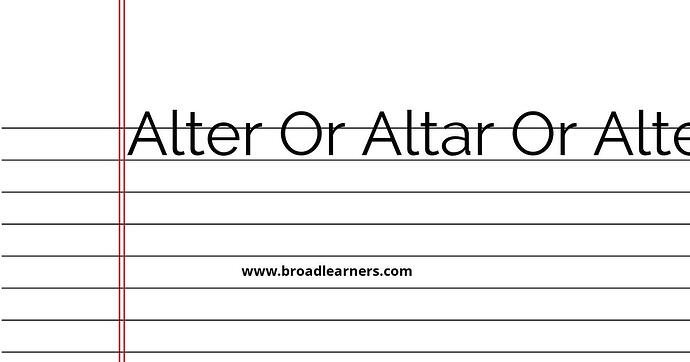'Alter', 'altar', and 'alter' are commonly confused words in English grammar. Understanding the difference between 'alter', 'altar', and 'alter' is important to use them correctly in written and spoken English.
'Alter' is a verb that means to change or modify something. It is used to describe the act of making alterations or adjustments to something.
'Altar' is a noun that refers to a raised structure or platform used in religious ceremonies. It is typically found in churches or temples and is used for offering sacrifices or as a focal point for worship.
'Alter' is also a verb that means to dress or tailor clothing. It is used to describe the act of making adjustments or modifications to the fit or style of clothing.
Let's take a closer look at the meanings and usage of 'alter', 'altar', and 'alter'.
| 'Alter' | 'Altar' | 'Alter' |
|---|---|---|
| The word 'alter' is a verb that means to change or modify something. | The word 'altar' is a noun that refers to a raised structure used in religious ceremonies. | The word 'alter' is also a verb that means to dress or tailor clothing. |
|
|
|
To remember the difference between 'alter', 'altar', and 'alter', it can be helpful to remember their specific meanings and contexts. 'Alter' refers to changing or modifying something, 'altar' refers to a religious structure, and 'alter' refers to dressing or tailoring clothing.
Here are some examples of correct usage:
- I need to alter my speech for the presentation. (changing the content of the speech)
- The couple exchanged vows at the altar. (referring to the wedding structure)
- She is skilled at altering wedding dresses. (adjusting the fit of the dresses)
Remembering the correct usage of 'alter', 'altar', and 'alter' will improve your grammar and communication skills.
